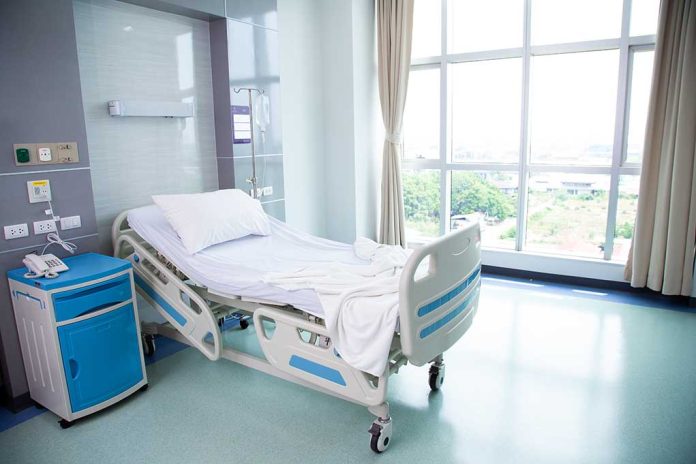
Hurricane Helene has drastically disrupted IV fluid supplies, exposing concerns about the U.S. healthcare system’s preparedness.
At a Glance
- Baxter International’s North Carolina facility closed due to flooding impacts from Hurricane Helene.
- U.S. hospitals experiencing shortages in IV fluid supplies crucial for surgeries and patient care.
- Other manufacturers intensify production to compensate for shortages.
- Healthcare facilities implement contingency plans to mitigate patient impact.
Hurricane’s Toll on IV Fluid Production
Baxter International, key in supplying 60% of the U.S. IV fluid market, shut its North Carolina production site after Hurricane Helene. Flooding has significantly impaired their operations, prompting engagement with federal agencies. This scenario echoes post-Hurricane Maria disruptions in 2017, unveiling vulnerabilities in supply frameworks. The closure directly affects hospitals such as Duke University Health System, now balancing supplies to minimize impacts.
Alternative manufacturers, including B. Braun and ICU Medical, are increasing output from unaffected facilities. B. Braun’s resilience highlights the necessity for diversified production. Healthcare providers now strategize on maintaining fluid reserves and prioritize critical patient care. Conservation models are being evaluated by institutions like Duke to adapt to potential shortages.
Helene ravaged the NC plant that makes 60% of the country’s IV fluid supply | arsTechnica
There is currently no timeline for when the plant will be able to reopen.
Hurricane Helene's catastrophic damage and flooding to the Southeastern states may affect the country's medical… pic.twitter.com/cM0B1djsKE
— Owen Gregorian (@OwenGregorian) October 5, 2024
Addressing the Crisis
Baxter has implemented a temporary hold on distribution. They’re examining supply chains, intending to reallocate resources efficiently. José Almeida, Baxter’s CEO, stated, “Remediation efforts are already underway, and we will spare no resource — human or financial…” The closure affects medical products vital for surgeries and treatments, primarily impacting kidney, cardiac, and urologic care.
The federal response includes a public health emergency declaration in North Carolina and deployment of personnel to affected hospitals. This supports consistent delivery of critical health services amidst challenging conditions. Baxter’s strategic adjustments reflect the necessity of proactive measures against natural events disrupting medical logistics.
Lessons for Future Preparedness
The Hurricane Helene incident reinforces the importance of robust disaster-preparedness strategies within the healthcare supply chain. Hospitals are adapting by stockpiling supplies and exploring mutual aid agreements with neighboring facilities to sustain healthcare delivery. These challenges underscore a broader call for improved supply chain security and infrastructure resilience across the medical sector.
Almeida emphasizes their commitment, stating, “The safety of our employees, their families, and the communities…remains our utmost concern, and we are committed to helping ensure a reliable supply of products to patients.” Strategic dialogues around supply chain redundancy and emergency readiness are imperative to shield patient care from future disruptions.





